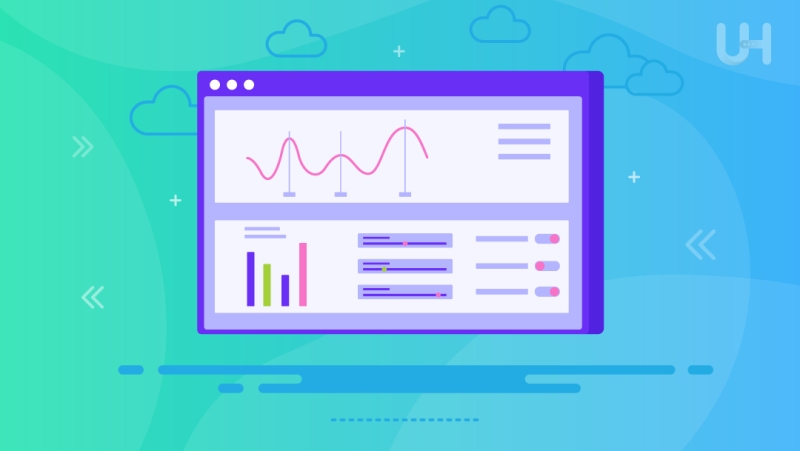Website Analytics are an important factor in determining how well your site is doing. These insights help track visitor behavior, sources of traffic, and engagement metrics, which will empower you to optimize marketing strategies and content for an online impact. In a digital strategy, a data-driven approach helps guide the decisions that will make your website successful.
In this article, we will discuss the importance of website analytics. We will also review the benefits and tools of website analytics and consider the outcome for online success in the upcoming advancing tech era.
What is Web Analytics?
Website analytics is the process of examining visitor behavior on a website. It encompasses tracking, analysis, and reporting to gauge web activity, including interactions with web pages, images, and videos.
Information gathered through website analytics includes traffic sources, referral sites, page views, user paths, and conversion rates. This data often integrates with customer relationship management analytics (CRM analytics) to enhance business decision-making processes.
Incorporating CRM hosting into your analytics strategy can further optimize customer relationship management processes. By leveraging web analytics, businesses can enhance customer retention, attract a larger audience, and boost customer spending, ultimately fostering business growth and success.
Analytics serve the following purposes:
- Assess the probability of a customer repurchasing a product post-purchase.
- Customize the website experience for returning customers.
- Track individual or group spending patterns.
- Analyze geographic visitor distribution and product purchase trends.
- Forecast future product purchase likelihood for customers.
Importance of Website Analytics

Firstly, when a user is looking to get information on a product, he or she always visits your company’s website first. Therefore, our website is also a product where one can get the necessary information about your products. In this regard, web analytics are crucial because:
Gain Insights into Website Visitors
Web analytics solutions present vital knowledge relating to the site’s users. This includes the average time a visitor takes on a given web page, the type of customer, and the trending content on the website. Studying such information enables a firm to understand what the user likes most, how they explore, and how they can help retain their presence on the business webpage. As such, an organization can develop proper adjustment measures to optimize its website to increase user awareness.
Analyze Website Conversion
For businesses, web analytics identifies conversions as actions taken, including a purchase, email sign-up, or form submission, presenting the data on total conversions, revenue generated, and conversion paths. Businesses benefit from a detailed analysis of critical conversion metrics, which presents information on conversion trends, touchpoints in the customer journey, and prospective barriers to conversion. Technologies enable businesses to strategize for simplified conversion processes and increased revenue opportunities via improved conversion rates.
Enhance Search Engine Optimization (SEO)
Web analytics come with visibility into conversion metrics and paths that could inform better SEO improvement. Web analytics allow businesses to determine the most performing design that generates the highest or the best quality of conversions. Additionally, businesses would identify their best-performing keywords, organic search traffic, and user engagement metrics. With such insights, businesses can maximize their website visibility and drive more traffic to their website. The continuous refinement of search engine optimization informed by analytics would enable businesses to increase their digital presence and also growth in search engine statistics.
Identify Top Performing Content
Analyzing web analytics can show users their highest-performing content types. As a result, businesses can better allocate resources toward content areas in which their users and viewers are most interested. By examining page views, time spent on a page, and engagement rates, businesses will determine which content topics, formats, and styles attract audiences and generate more meaningful interactions. This information allows businesses to develop content marketing approaches that prioritize generating relevant, captivating, and enjoyable content that will underpin higher audience interaction, brand loyalty, and conversion activities.
Optimize Referral Sources
Web analytics also help identify the top referral sources, showing you the marketing efforts that drive the most traffic and where you should focus more of your attention. Businesses can use referral data to understand the best marketing channels, partnerships, and campaigns to drive traffic to their website and conversions. You obtain the sources you should invest more in, which data enables the allocation of resources for optimal performance, marketing spend optimization, and building relationships with the referral sources that are mutually beneficial. Moreover, you can identify new referral sources that represent unskilled opportunities to diversify marketing for more extensive and engaged cross-channel reaches.
Track Page Visits and Sessions
Web analytics monitor website page visits and sessions over a specified period. This informs website traffic and performance metrics. The quantity and quality of backlinks are considered, and contentment is defined on the success dashboard. Page visits and session reports indicate whether a website has had a few visitors throughout intense visits within a short period. This also tracks page visits during different times of the day.
Consequently, depending on the intensity of page visits, it informs whether the website is static within a day or has peak hours of optimal engagement at any time. Such information is vital in identifying areas to enhance long-form content strategy and website performance optimization and in attracting more visitors to access, stay, and convert. Businesses can also utilize the website analytics page and session visit data to see the low-ranking pages, what could be the problem, and how to optimize such inclusions to increase the utility of the entire website.
Enhancing Online Presence With Secure Hosting!
Ready to elevate your online presence with powerful analytics? Explore our Secure WordPress Hosting service at UltaHost, ensuring your website not only performs optimally but also stays secure and reliable for your visitors.
Benefits of Website Analytics
Now that you know the importance of website analytics, let’s see the benefits it offers businesses:
- Better Website Functionality: By analyzing website data allows companies to outline what needs to be worked upon, optimize for better performance, and attract more visitors. Ultimately, a data-driven marketing approach allows users to navigate the website seamlessly, feel satisfied with their user experience, and stay engaged.
- Increased Conversion Rates: By leveraging web analytics, organizations can identify pages with the lowest conversion rates and appropriately optimize them. By focusing on adjustments and improvements, the efficiency of the conversion strategy greatly improves and results in more conversions. Consequently, the business benefits from a boost in revenue and profitability.
- Enhanced User Engagement: Companies use web analytics to see how users use their websites. As a result, they get ideas to improve the user experience. For example, a company’s website users click the post more frequently. To reward them and make them come back, the company can decide to ensure all the trending posts are oriented from the title to the body, unlike the body only. It will help retain the user more to read the entire post, achieving satisfaction.
- Efficient Marketing Strategies: Web analytics provide valuable insights into target demographics and behaviors, allowing businesses to frame targeted marketing campaigns. Since businesses can easily reach their audience with the right message, efficient methodologies optimize marketing campaigns, reducing the cost and increasing the return on investment.
Website Analytics Tools
Web analytics tools are perhaps the most used as they offer critical website performance information such as visitor origins and duration of stay, as well as referral sources and online behavior. However, the tools are not limited to web analytics; they are also useful for product, social media, and marketing analytics. Some of the web analytics tools are:
- Google Analytics: Google Analytics tool helps monitor website traffic, behavior, and conversions, tracking one’s site page views and bounce rate and showcasing his or her audience’s demographic data.
- Optimizely: A platform helping businesses optimize their online experiences and conversion rates through customer experience and A/B testing.
- Kissmetrics: A customer analytics tool that shows insight into his or her customer data, where he or she can simplify decisions and develop trends.
- Crazy Egg: A tool that records user clicks on the webpage to help understand visitors’ interaction and behavior through session recordings and heatmaps.
Conclusion
To sum up, well-impact knowledge of website analytics is the key to enhancing one’s online presence. Data-driven organizations can boost their performance and streamline strategic online choices to succeed in the changing tech environment through insights into visitors and interaction levels. Improved user experiences reaffirm their continued satisfaction through heightened conversion rates and polished marketing mechanisms; for this reason, they keep growing.
UltaHost offers an All-In-One affordable web hosting plan with cPanel, free support, and unlimited bandwidth. It is an excellent option for businesses looking to exploit the full potential of web analytics tools.
FAQ
How does website analytics contribute to customer retention?
Website analytics aids in understanding user preferences, enabling personalized experiences that enhance customer satisfaction and loyalty, thus improving retention rates.
Can website analytics identify conversion barriers?
Yes, analytics tools reveal user journey insights, allowing businesses to detect obstacles in the conversion process and take proactive steps to improve conversion rates.
How does website analytics identify emerging trends?
Analytics provides real-time data on user behavior, enabling businesses to detect emerging trends and adapt strategies to meet evolving customer needs and preferences.
Are there privacy concerns with website analytics?
While analytics collect data, businesses must ensure compliance with privacy regulations like GDPR and CCPA, obtain user consent, and secure data to protect against misuse.
How can website analytics integrate with CRM systems?
By integrating website data with CRM insights, businesses gain a comprehensive view of customer interactions, empowering targeted marketing and personalized experiences.












